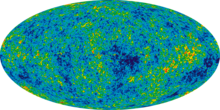User:Kmarinas86
Karl Raimund Popper on "Normal science"
See also: "On Revolutions and Progress in Knowledge"



| Since 2002[1][2] I have been known online as kmarinas86. | |
| kmarinas = k + m+a+r + i + n+a+s = 11 + 13+1+18 + 9 + 14+1+19 = 11 + 32 + 9 + 34 = 43 + 43 = 86 = 19+9+14 + 11+1+18+13+1 = s+i+n + k+a+r+m+a = sinkarma | |
| Coincidence is nothing.... |
Articles whose sections I have rearranged
|
Other methods of improving Wikipedia in an efficient mannerPage renamingoverwhelming support )
Citation bombardment
| ||||||
 Nature is an eternal mixture of wilderness and civilization. | ||||||||||||||||||||||||||||||||||||
|
Philosophical points of view
Scientific Method
Rationalism—A scientist's way of generating guesses, from humble hypotheses to elegant theories.
- If something of importance is out there, it ought to be conceived. This is the basis for meaning.
Empiricism—A scientist's way of generating data.
- If something of importance is out there, it ought to be discovered. This is the basis for discovery.
Verifiability—A measure of the scientist's ability to incorporate a result within a larger theoretical framework.
- If something of importance is out there, it ought to be a recognized idea. This is the basis for defining the limits of knowledge.
Falsifiability—A measure of the scientist's ability to detach or quarantine an idea from a larger theoretical framework.
- If a recognized idea does not correspond to the truth, it ought to be falsified. This is the basis for respect of the truth.
Correspondence theory of truth
- The coherence theory of truth is wrong. Coherence respects the "meaning of man's words", but not the truth.
- The pragmatic theory of truth is wrong. Pragmatism respects the "preoccupations of man", but not the truth.
- The consensus theory of truth is wrong. Consensus respects the "limits of man's knowledge", but not the truth.
The taxonomy of claims
Four types of claims
| Some | quality | is explained by | ||
|---|---|---|---|---|
| action | ||||
| feeling | justification | a quality. | ||
| opinion | revelation | an action. | ||
- , Action / Event 1.
- , Action / Event 2.
- , Quality 1.
- , Quality 2.
|
Feeling |
Opinion |
Justification |
Revelation |
Discussion
The next four sections discusses these four types of claims (in increasing order of objectivity).
FeelingWhen the only elements of an "explanation" are one or more qualities intended to explain a quality,
|
Examples:
|
OpinionWhen the only elements of an "explanation" are one or more actions intended to explain a quality,
|
Examples:
|
JustificationWhen the only elements of an "explanation" are one or more qualities intended to explain an action,
But either the explanation begs the question about the quality itself
Such qualities are not falsifiable given the limited context. |
Examples:
|
RevelationWhen the only elements of an "explanation" are one or more actions intended to explain an action,
It is possible for this form not to beg the question, in light of explanations of the causal actions,
|
Examples:
|
Interests
|
|
|
| |||||||||||||||||||||||||||||||||||||||||||































